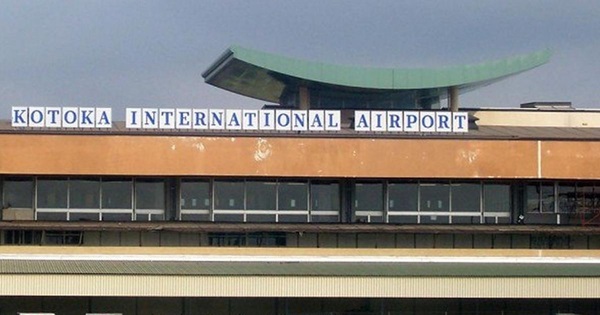
Relocating regional airlines: Opinions divided over Terminal 2
Opinions among stakeholders in the aviation industry are sharply divided over an impending decision to relocate regional airlines from Terminal 3 to Terminal 2 of the Kotoka International Airport (KIA).
While some of the industry players maintain that the move was a step in the right direction, they used the potential of the decision to help decongest the heavily choked Terminal 3 to justify their point.
They were also of the firm opinion that such a move would help revive Terminal 2, which has become idle for a long time, and eventually generate some additional revenue for the smooth running of the airport.
Those against the decision, however, maintained that the idea would create unfavourable competition for the affected carriers and also defeat the overall agenda of the government to make the country an aviation hub.
Context
The Ghana Airports Company Limited (GACL) is mooting the idea to relocate all regional airlines from Terminal 3 to Terminal 2 as part of efforts to decongest the new terminal at KIA.
The exercise targets regional airlines including Ethiopian Airways, ASKY Airlines, Air Cote D’Ivoire, Ibom Air, Air Peace, Air Burkina, Africa World Airlines (AWA), Kenya Airways, RwandAir and Royal Air Maroc.
The GACL at a stakeholders’ meeting, tabled an effective date of December 1, 2024, to carry out its decision.
The affected airlines, following the meeting with GACL, expressed concerns regarding the tight timeline and the need for the facilities at Terminal 2 to be upgraded to meet the required international aviation standards.
To them, their passengers pay substantial airport passenger service charges comparable to those of other African and international carriers and, therefore, deserve services commensurate with what they paid.
Right step
A source from Brussels Airlines, who prefers to remain anonymous, told the Graphic Business that the decision to move the regional airlines to a separate terminal was a step in the right direction.
The source explained that most international airports have similar arrangements, where regional carriers operate from a separate terminal in the same airport.
“Although I cannot provide an official statement, the relocation of regional airlines to a separate terminal should be seen as a positive development.
“I am also confident that the relocation will reduce congestion and improve passenger flow at Terminal Three, notably during busy weekends,” the source added.
Undermining hub agenda
An international aviation expert, Sean Mendis, in an interview with the Graphic Business via telephone, said the intended decision risks compromising the country's ambition to establish itself as West Africa's key aviation hub.
Mr Mendis, a former Chief Operations Officer of Africa World Airlines (AWA), maintained that the decision signifies that GACL had given up on the ambition to make Accra a hub for the sub-region.
“The goal was for Accra to be a hub for the region - where regional airlines would bring passengers from Abidjan, Freetown, Monrovia, Lagos, wherever and then seamlessly connect to long-haul flights- would be defeated.
“Moving them to a different terminal implies that this dream is now dead. You cannot change planes or transit in 30 minutes; you need two to three hours,” he said.
Mr Mendis explained that once the relocation was done, passengers would prefer using Lome, Abidjan or even Lagos, which was more convenient and in a single terminal.
He said the development of congestion at Terminal Three highlights GACL's inability to effectively manage growth and ensure seamless operations, impacting traveller satisfaction.
“I cannot remember the name of any international hub that deliberately separates regional airlines,” he added.
Mr Mendis has nearly 20 years of experience in the aviation industry in Ghana and other parts of the world.
He helped launch multiple aviation business lines, including Ghana International Airlines, a jet-fuel terminal in the United Arab Emirates (UAE), and a cargo airline based in Uganda.
Unfavourable advantage
Another source from Ethiopian Airlines said the move would offer an undue advantage to the airlines operating at Terminal Three.
“Some of the airlines that are being moved to Terminal Two are competitors to those they want to leave at Terminal Three.
“For instance, Ethiopian Airlines does a lot of service to Dubai and for that reason, competes with Emirates. Therefore, moving Ethiopian Airlines to Terminal Two and leaving Emirates at Terminal Three, with all the modern facilities, would give them an unfavourable advantage over the African-owned carriers that are being relocated,” the source said.
Regulator’s position
When the Graphic Business contacted the Ghana Civil Aviation Authority (GCAA), its Director in charge of Economic Regulations and Business Development, Rev. Stephen
Wilfred Arthur, said the regulator was aware of the ongoing discussions to relocate the regional-owned carriers.
“The authority is aware of the ongoing discussions. It is still at the discussion stage, as we have been made aware, but nothing has been concretised yet,” he said.
Since the regulator was not against any move to change a terminal for carriers, he explained that such a move should not also disadvantage affected airlines.
He added that the authority would make its position clear on the relocation when the stakeholder discussions end.
Checks at T2
Graphic Business checks showed that the facilities at Terminal 2 are not up to standard to accommodate all the regional carriers and the two other domestic airlines (AWA and Passion Air).
Therefore, GACL must make significant investments to modernise Terminal 2's facilities, align them with international standards, and enhance the overall airport experience for customers.
It was also observed that without that, customers would prefer doing business with competitors that would remain at Terminal 3, such as KLM, Delta Air Lines, Middle East Airlines, Turkish Airlines, Emirates, Brussels Airlines, Qatar Airways, ITA Airways, United Airlines, Air France and British Airways.
